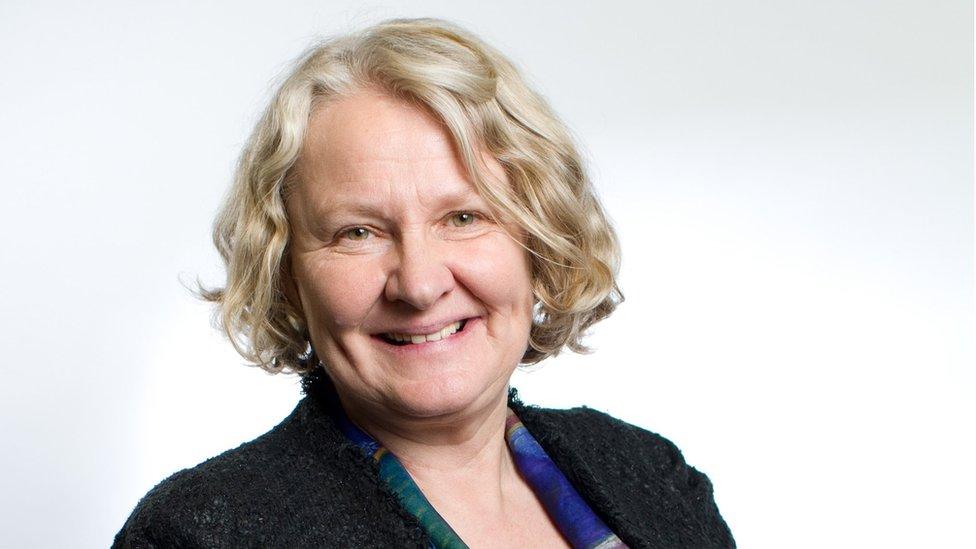University counselling services 'inundated by stressed academics'
- Published

Stressed out academics are inundating university counselling services as they grapple with heavy workloads and oppressive management, a report says.
Referrals to such services had risen by three-quarters between 2009 and 2015, the study for the Higher Education Policy Institute indicated.
Author Dr Liz Morrish said academics were facing unmanageable workloads in university "anxiety machines".
University bosses say they are working to improve wellbeing in institutions.
But they said they recognised there was more to do to create the supportive working environments in which both academic and professional staff thrived.
'Performance management'
Until recently, the mental health of students rather than academics has been in sharp focus, with a string of student suicides prompting attempts to support young people living away from home.
MP brands uni 'callous' over suicide
More students seek help for mental health
Student mental health 'failing a generation'
But the deaths by suicide of two respected academics, Malcolm Anderson, at Cardiff University, and Prof Stefan Grimm, at Imperial College, have highlighted the excessive pressure that some academics feel.
Dr Morrish's study suggested the pressure of performance management and a data-led culture of surveillance had led middle-aged academics to be at greater suicide risk then either students or peers in other professions.
The independent academic made Freedom of Information requests to 74 larger higher education institutions - those with 2,000 staff or more - and 59 of these responded.
The average increase in referrals to counselling services, whether self-referred or otherwise, was 77% but, in many universities, rates of increase between 2009 and 2016 were much higher:
University of Warwick- 316%
University of Kent - 292%
Brunel University - 177%
Newcastle University - 126%
University of Bristol - 88%
University of Portsmouth - 74%
University of Edinburgh - 72%
And the rates of growth were steeper between 2013 and 2016, when the new fees regime, with its higher expectations from students paying up to £9,000 a year for courses, came into force.
Dr Morrish said so many in-house counselling and occupational health services had been overwhelmed that many of these programmes had since been outsourced to the NHS or private practitioners.

Her research suggested that workplace stress was causing many of the issues that academics were taking to counsellors.
She gave the example of managers who gave staff the message that "one is never doing enough, producing enough or performing well enough or quickly enough, this can rapidly lead to employee burnout".
And she highlighted how increasing workloads "up to the max" piled the pressure on individuals and that the insecurity of one short-term contract after another fed into staff anxiety and mental ill health.
Higher Education Statistics Agency data suggests a third of academics are on fixed-term contracts.
One commentator, quoted by the research, said: "Framing the suffering experienced by staff and students as a mental health crisis obscures the material causes of this suffering.
"No amount of counselling will make you resilient enough to be able to mark 418 exams in 20 days without experiencing immense suffering."
'Root cause'
A spokesman for Universities UK said the mental health and wellbeing of staff and students was a priority for universities and highlighted how its Stepchange framework set out a whole university approach to mental health.
"This frames universities as health-promoting settings, across all environments and activities, supporting all students and staff to thrive, as well as helping those who are unwell," he said.
Acting general secretary of the University and College Union Paul Cottrell said: "Excessive workloads, a lack of job security and managers obsessed with league tables and rankings have blighted the sector for years and this report lays bare the negative impact those working conditions have on the mental health of staff.
"Universities need to support their staff and ensure they can get the help they need but, crucially, they have to tackle the root cause of these problems."
- Published12 May 2018

- Published29 October 2018

- Published21 May 2019
